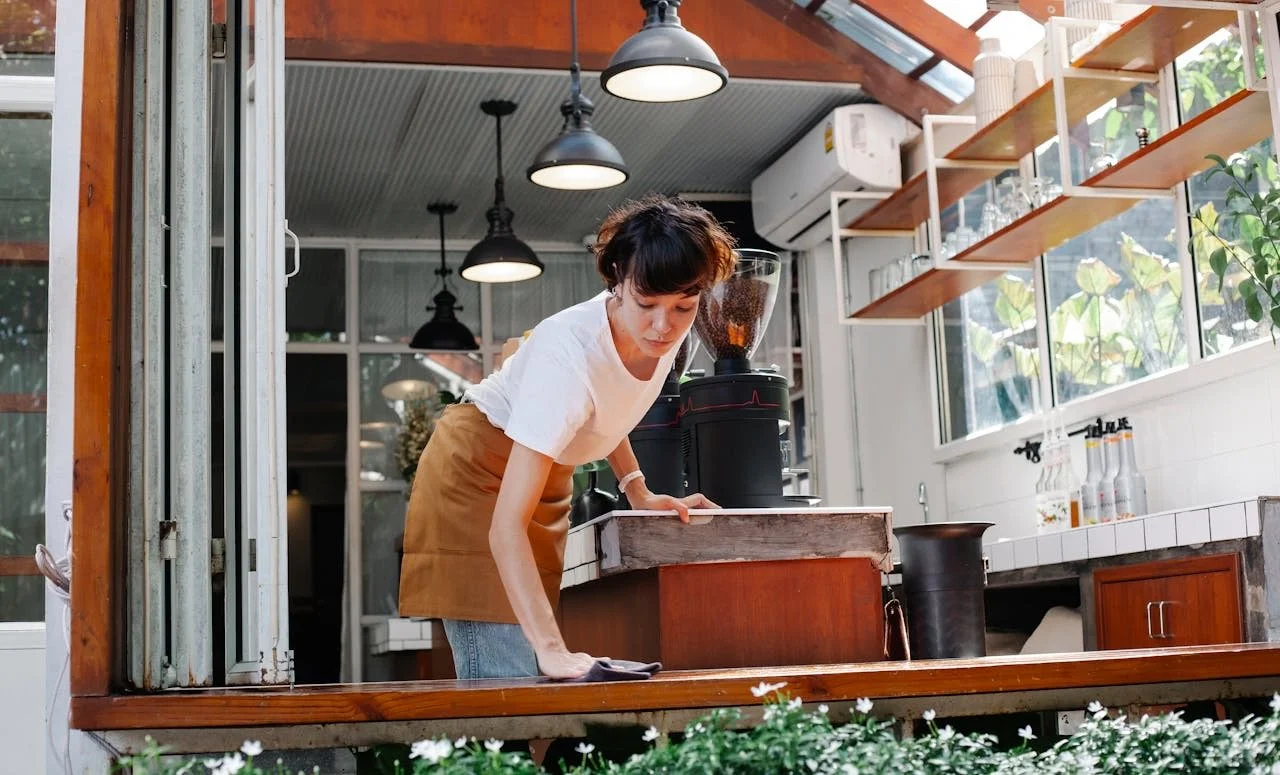Lease vs Loan: What’s Best for Your Business Cash Flow?
Last updated: 30 March 2025
Whether you're upgrading gear or managing cash, this guide explains which option helps you grow smarter—with fewer regrets down the road.
When you’re running a business, upgrading equipment can be an exciting but stressful decision. Whether it’s a new ute for your trade business or a full commercial kitchen setup for your café, the real question is: How should you pay for it?
Two of the most common options are leasing or taking out an equipment loan. On the surface, they seem similar — but the way they work can have a big impact on your cash flow, tax position, and long-term business goals.
Let’s break it down together in plain English.
What Is Equipment Leasing?
When you lease equipment, you’re essentially renting it for a fixed term. You make set monthly payments to use the equipment, but you don’t technically own it. At the end of the lease, you can often return it, upgrade to something newer, or buy it out for a pre-agreed amount.
Leasing is great if you’re starting out, need the latest tech, or don’t want the commitment of ownership. You get flexibility and lower upfront costs, which can help keep your cash flow steady.
It’s especially useful in industries like hospitality, where equipment often requires ongoing updates, repairs, or replacement due to heavy use. Leasing commercial kitchen equipment — like ovens, dishwashers, combi steamers, and refrigeration units — allows business owners to stay operational with minimal capital outlay and the option to upgrade as the business scales or technology improves.
Instead of stretching your cash reserves or delaying a fit out, leasing gives you immediate access to high-quality gear without tying up working capital — and often with maintenance included.
What Is an Equipment Loan?
A loan works differently. You’re borrowing money to purchase the equipment — which means the asset is yours, either from the beginning or once the loan is fully paid off.
Owning the asset gives you more control. It’s ideal for long-term equipment that won’t need upgrading soon, like vehicles, commercial ovens, or tradie tools. You can often claim depreciation and interest on the loan as tax deductions, which helps at tax time.
Unlike a lease, you build equity from day one. This can strengthen your balance sheet and make future finance approvals easier — especially for growing businesses looking to reinvest.
How They Compare (Without the Finance Jargon)
Think of it like this:
Leasing is like renting your gear. You pay for the use of it, and it’s easier to upgrade or walk away at the end.
A loan is like buying your gear. You own it, can build equity, and often get stronger long-term value.
Leasing tends to have lower monthly repayments and is better for equipment that becomes outdated quickly. Loans usually cost less in the long run and are best for assets you plan to keep for several years.
Examples
Here’s how two business owners approached their equipment needs:
Jess runs a mobile café and needed a full coffee machine setup. She chose leasing so she could access top-end gear without a big upfront cost — and she’ll upgrade when she expands to a second van.
Sam, who owns a busy restaurant, decided to lease his commercial kitchen equipment — including ovens, exhaust systems and a new dishwashing line — as it allowed him to preserve cash flow and upgrade as his menu evolved. The lease even bundled in servicing, helping him avoid unexpected repair bills.
Dave is a plumber who needed a new ute and trailer. He went with an equipment loan so he could own the vehicle outright and claim depreciation. It’s a long-term investment that builds equity for his business.
When Leasing Might Be a Better Fit
You want to keep upfront costs low
You’d prefer smaller monthly repayments
Your equipment needs change regularly
You don’t plan to use the same gear long-term
You value flexibility or want to upgrade easily
You work in hospitality, tech, or other fast-moving industries
You want potential access to maintenance-inclusive finance options
When a Loan Might Be Smarter
You want to own the asset outright
You’re buying equipment that will last for years
You’re looking to claim tax deductions like depreciation
You prefer building equity over time
You plan to refinance or leverage the asset later
Still Unsure? We Can Help You Decide
The truth is, there’s no one-size-fits-all. Some business owners lease their short-term gear and finance their long-term assets. Others go all-in on loans for full ownership. The right move depends on what you’re buying, how long you’ll need it, and what kind of cash flow flexibility you want.
At Casey Asset Finance, we help you compare both options clearly. We’ll show you the repayments, explain the pros and cons in plain English, and make sure it aligns with your goals.
Why Business Owners Work With Us
Access to over 40 lenders, including low-doc options
Fast approvals — sometimes within 24 hours
Simple process, no unnecessary paperwork
Honest advice — even if the right option isn’t with us
Personalised service that puts your needs first
We’re here to support your business — not sell you something you don’t need.
Final Thoughts
Leasing is all about flexibility. Loans are about long-term ownership. Both are useful — it’s about knowing when to use which one.
If you’re stuck, don’t stress. Helping business owners get clarity on finance is what we do best.
Ready to Take the Next Step?
Still deciding between a lease or loan? Let us help you compare your options side by side — no pressure, no cost to apply.
Tap the Apply Now at the top of this page — Takes 2 minutes. No credit check. Just tailored advice.
Or
If you have any questions, feel free to reach out to me below.
Kind regards,








